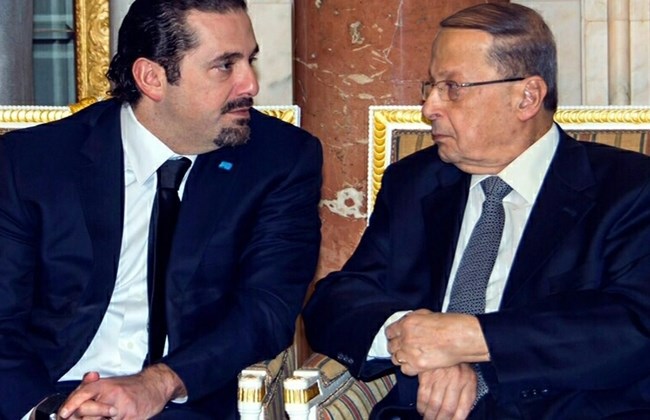Aoun turns 80, and still determined to run for president
Feb. 17, 2015
Hasan Lakkis/The Daily Star
Although MP Michel Aoun will celebrate his 80th birthday Tuesday, the Free Patriotic Movement leader is as determined as ever to stay in the presidential race despite his age, dismissing repeated March 14 calls to withdraw in favor of a consensus candidate to fill the country’s top Christian post.
Aoun, according to many observers, staunchly refuses to quit the presidential race because he is fighting what he views as the last battle in his long political career. In explaining Aoun’s unyielding stance on the nine-month presidential election deadlock, sources close to him said that the FPM leader still considers himself the most qualified Christian political figure to assume the country’s presidency in these circumstances through which the region is passing and their repercussions on Lebanon in general, and on the Christians in particular.
“Aoun still considers himself to be at the peak of his presidential battle as long as there is no president in Baabda [the seat of the presidential palace] and there are no serious signals so far about the possibility of electing a president,” the sources said. “Also, Aoun has not yet pondered Plan B, under which he will become the top voter [in the presidential election] instead of being the sole candidate.”
The sources added that the FPM leader would remain adamanton his position for as long as Hezbollah stood firm on its support for Aoun for the presidency – a stance that would not change unless Aoun decided to retreat from the presidential race. However, the same sources raised questions about the expected results of Aoun’s stubborn stance and whether his assessment of developments was based on wishful thinking or a mix of wishes and facts.
The sources recalled Aoun’s dialogue with the head of the Future Movement, former Prime Minister Saad Hariri, when the FPM leader misread the latter’s attitudes toward the presidential crisis and developed misplaced hopes. During the FPM’s dialogue with the Future Movement last year, Aoun sought to win Hariri’s support for his candidacy, even though the March 14 coalition, including the Future Movement, is backing Lebanese Forces chief Samir Geagea, Aoun’s political opponent, as their presidential candidate.
Although officials from the two rival Christian parties, the FPM and the Lebanese Forces, are still engaged in a dialogue to set the stage for a meeting between Aoun and Geagea, some in the FPM have voiced pessimism about the possibility of success in breaking the presidential impasse through these talks. Sources familiar with those preparing a memorandum of intent between the two parties have expressed excessive optimism to the extent that they are close to be convinced that Geagea will announce his support for Aoun’s candidacy to the presidency.
Those in the FPM who have doubt that the dialogue with the LF will result in success said that whether Geagea is maneuvering or being serious in his talks with the FPM, it is difficult for him to decide anything on the presidential election before returning to his March 14 allies, namely Hariri. So far, available information does not indicate that the March 14 coalition will accept Aoun’s nomination to the presidency, the sources said. According to the same sources in the FPM, what has so far been achieved from the FPM-LF dialogue would be good and important if the dialogue had been held in normal circumstances.
But the results and strength of this dialogue, given the primary concern with the presidency, become secondary and could vanish if the two sides fail to agree on the presidential election, the sources said. They added that the ongoing contacts between the FPM and the LF would not cause any loss for Aoun. But the prolongation of the presidential vacuum, especially amid an atmosphere that does not underline the need for the presence of a president, would help weaken the Christians’ top post in Lebanon, the sources said.
Meanwhile, diplomatic sources close to the Vatican said that French presidential envoy Jean-Francois Girault told Maronite Patriarch Beshara Rai when he met him in Rome last week that his talks with rival Lebanese leaders in Beirut did not lead to any positive results that would help hold the election. The Holy See is mulling the possibility of sending a special envoy to Lebanon in the near future to discuss the presidential crisis with Lebanese officials and political parties, the sources said.




















